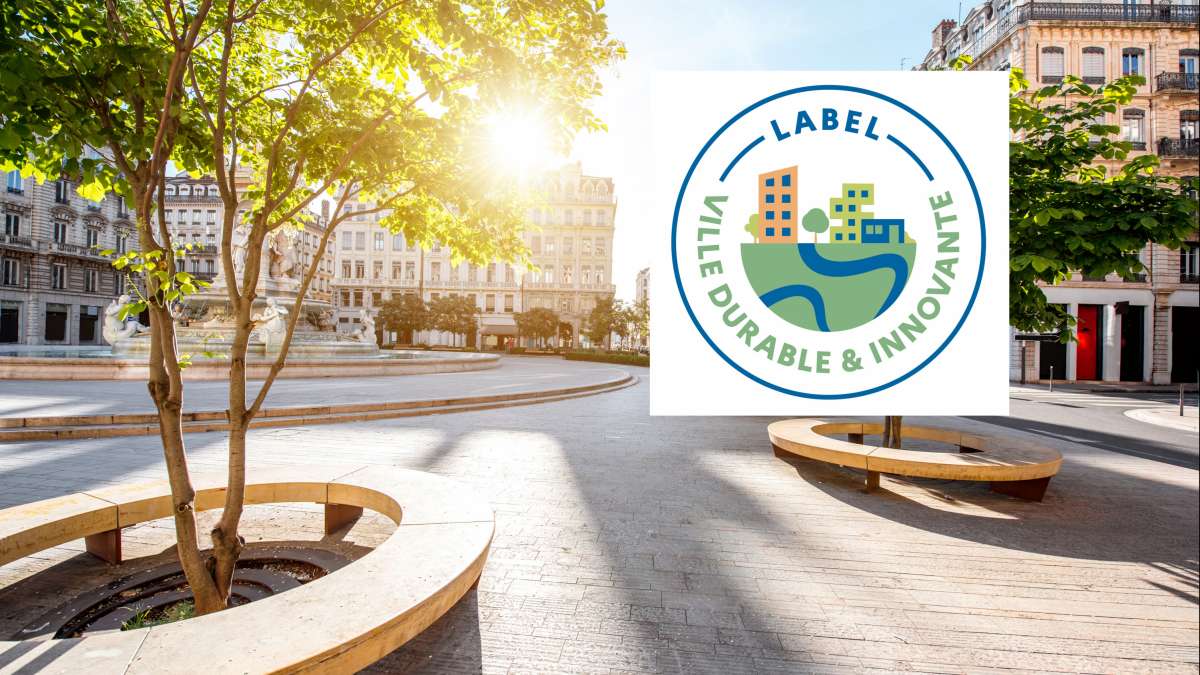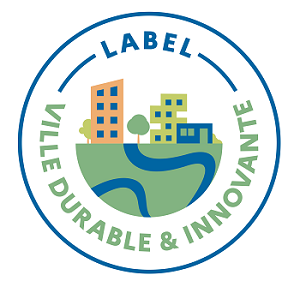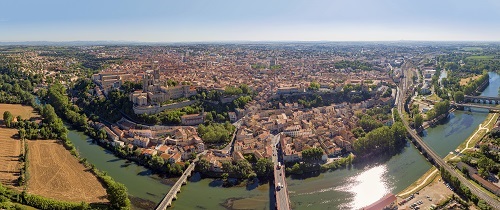This article is part of the folder : Le Label Ville Durable et Innovante : le dossier
See the 2 news related to this folder

If all local players are now facing challenges such as challenges such as adapting to climate change, cities climate change, cities are the focus of many issues and must consider development in the long term.
The Sustainable and Innovative City label, developed by Cerema and Efficacity, will provide local authorities with a communities a 360° vision of the sustainable and innovative cities, and to ensure that their and innovative cities, and to ensure that their approaches meet best practices. It will also help promote a European model of the sustainable city.
The Sustainable and Innovative City label: a reference system for action
This label is the first European label that to highlight the steps taken in favour of the sustainable city. sustainable city. It is intended to become part of the international landscape in order to offer local authorities a European European approach to strategies and action levers as well as on the evaluation criteria evaluation criteria that promote the development of the sustainable city, in line with the 17 major Goals of Sustainable Development (SDGs) of the UN.
Through the VDI label, communities can promote all their actions in favour of the sustainable city and join a network of certified communities. label. In addition, this label could eventually facilitate access to certain public funding. public funding.

The Sustainable and Innovative City label, which for the moment is aimed at EPCIs before being extended to other local authorities such as municipalities, has been designed by integrating the best practices of existing international benchmarks, the UN's SDGs, the ISO 37101 standard, the reference framework for European It completes the Climate Air Energy Label of the Local Authority Committed to Ecological Transition program carried out by ADEME by integrating the issues of quality of life and social cohesion, economic transition, resilience, and cross-cutting themes such as innovation and governance, which constitute the 5 axes of the reference framework:
-
Innovation with objectives in terms of local innovation strategy, local ecosystems, digital services, physical and digital infrastructure, deployment of smart solutions for urban services and networks.
-
Quality of life and Social cohesion: this axis covers actions in the areas of social cohesion, health, access to housing to housing, leisure and sport.
-
Economic transition: This refers to actions in favour of economic development with sustainable jobs, local economy of proximity, sustainable management of the community.
-
Resilience: the challenge is to define a strategy of territorial resilience by integrating natural hazards as well as digital security, food security, infrastructure adaptation and economic resilience.
-
Cross-functional governance, which enables sustainable development to be on the appropriate scale.
A framework for analysis and a tool for steering the process

Seven local authorities (including 6 agglomerations) have experimented with the approach between September 2020 and the end of 2021 during a pilot phase, and their very rich feedback helped to refine and stabilize the framework.
The VDI label provides communities with a framework for analysis for each of the objectives (diagnosis, strategies, action plans, performance indicators, assessments) and helps them to identify, prioritize and organize all of their public policies in service to a sustainable and innovative city.
It also offers, through its governance domain, a tool for managing processes that facilitates teamwork and cross-functionality.
A call for applications will be issued in the spring 2022. Before applying, the cities will be invited to quickly assess themselves online. A support will then be offered to them by an advisor, for a short period of 4 to 6 months to prepare the application over a long period of one and a half to two years with assistance in evaluating their public policy of Sustainable Development, the implementation of a roadmap and its adaptation as the projects progress , in addition to the help for the preparation of the file.
In addition, an application to a European Urbact project will also be submitted in the fall of 2022, in order to build with a group of cities (one of the French pilot cities and several other European cities), first international version of the label, called the Smart and Sustainable City Award.
Learn more:
In the folder : Le Label Ville Durable et Innovante : le dossier

